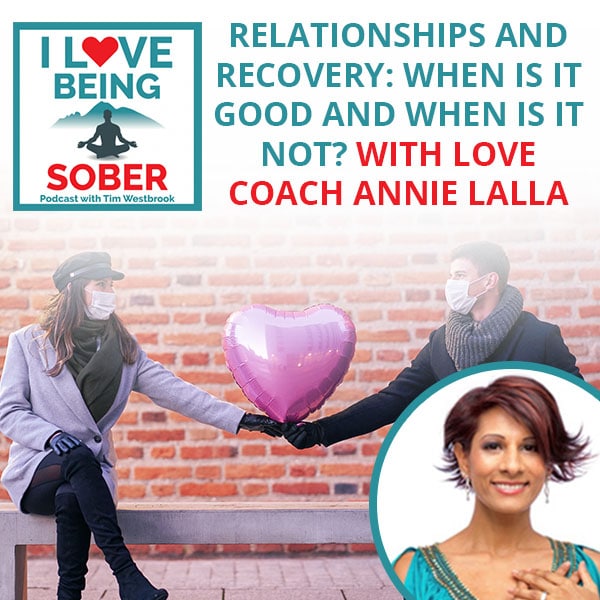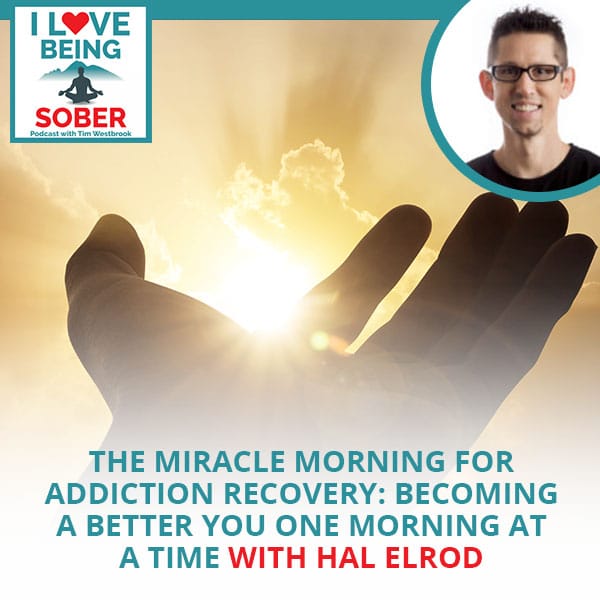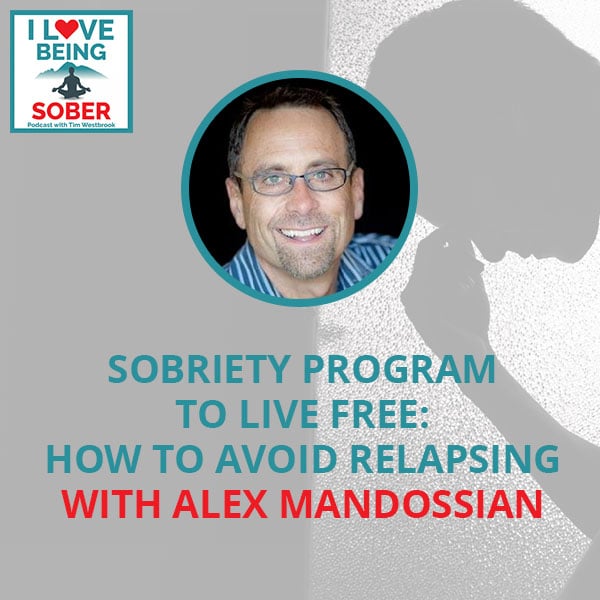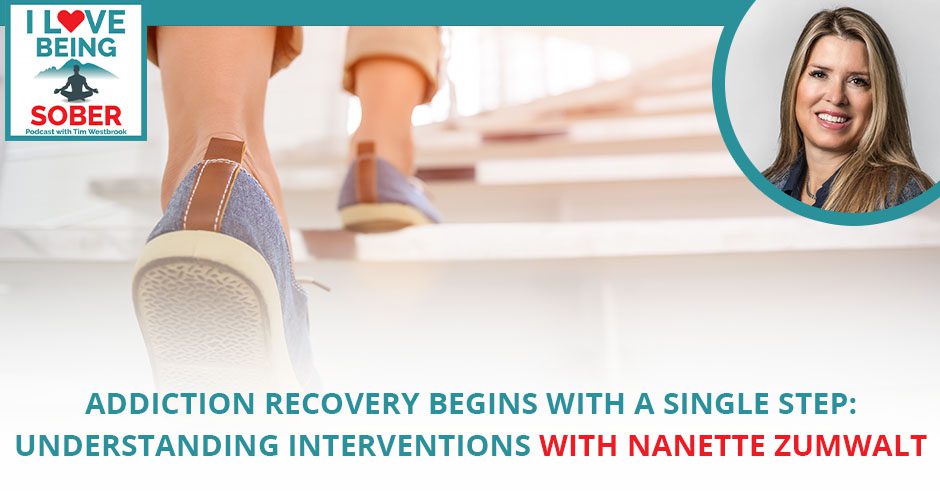
Healing is not a lonely business. It takes a village. With interventions, the family creates a plan to help their loved one struggling with addiction. In this episode, Tim Westbrook, MS invites Nanette Zumwalt to share with us her expertise as one of the top interventionists in the industry, both nationally and internationally. Nanette helps us understand what an intervention is, what role a family system plays, and how the process goes to find the healing they need. She talks about what happens when a family also needs to do the work and how we are navigating this current environment with technology. Encouraging those who want to become interventionists, Nanette then discusses why they need to become more professional and offers advice on how to get there. Plus, she also talks about the individual recovery support services, extending help to those who need that professional support person.
—
Watch the episode here:
Listen to the podcast here:
Addiction Recovery Begins With A Single Step: Understanding Interventions With Nanette Zumwalt
We started the show because there’s so much misinformation about addiction treatment, mental illness, and recovery in general. There’s so much more to recovery than just going to inpatient treatment, seeing a therapist and going to Twelve-Step meetings. All of those things are important, and AA saved my life. However, to find long-term recovery and live happy, joyous and free, there’s a lot more to it than stopping the drinking, drugs, sex addiction or any addictive behavior for that matter. To live a new life, a person needs new healthy lifestyle habits, amongst many other things.
Typically, this includes new eating habits, sleeping habits, exercise habits, hobbies, interests, friends, self-care becomes a priority and the list goes on. Those are the types of things that we talk about here on this show, amongst many other things. I’m here with Nanette Zumwalt. She is recognized as one of the top interventionists and an industry expert, both nationally and internationally. She holds credentials as an International Certified Alcohol and Drug Counselor, Level Two Clinical Supervisor, an International Certified Criminal Justice Professional, a Certified Intervention Professional, and a member of the Association of Intervention Specialists.
Nanette also serves on the Board of Directors for the National Association of Addiction Treatment Programs. She is a past Board Member of the Association of Intervention Specialists and a current member in good standing with a large variety of related organizations. Nanette and I will talk about saving lives through interventions and individual recovery support services like safe passage, coaching, sober companion and case management. Nanette, welcome to the show. I’m so glad to have you here.
Thank you for having me, Tim.
Let’s dig into it. Tell me a little bit about your background and how you got interested in helping people struggling with addiction and mental health.
[bctt tweet=”Your family are the people that are going to be there through thick and thin.” username=””]Similar to many people who get drawn to this field and to the area of healing, it’s through our own stories. I grew up in a very loving, happy family who also struggled with addiction. I was part of intervention early on with my oldest sister when I believe I was about nine. I remember someone coming into our home and helping us. I remember even as a young child thinking, “Who is that person? What just happened? How did that happen?” It intrigued me from a very young age and that was the start of my own recovery journey.
You were nine. How old was your sister?
She was fifteen.
What was she struggling with?
She was struggling with addiction, with substance abuse, and behavioral issues. Our family was in chaos.
Did you ever struggle with addiction yourself?
I did. It looked different. In a family, when you have an identified client or person that is the focus in the area, the others tend to get blurred. In my family, I was functioning. I looked like a rock star. Things were going well. A lot of things were that duck under the water. On the top, I was floating softly, and on the bottom, my feet were paddling 1 million miles an hour.
That was your first experience, and then what?
Our family fell apart. We grew up and separated. I went to college and did what I thought everyone did in college, drank, partied and ran amuck. I thought that’s what you did in college, and that was part of the role of college. It worked until it no longer worked. I met and have been with my wonderful husband since high school. He was a college athlete. He was my rock and solution. He was the one that said, “We’re not doing this anymore. Things are going to be different for us.” We moved back home to Southern California after college, began to work in the addiction and mental health fields, and pulled ourselves together.
When he said, “We’re not doing this. It’s going to be different for us,” what exactly did he mean?
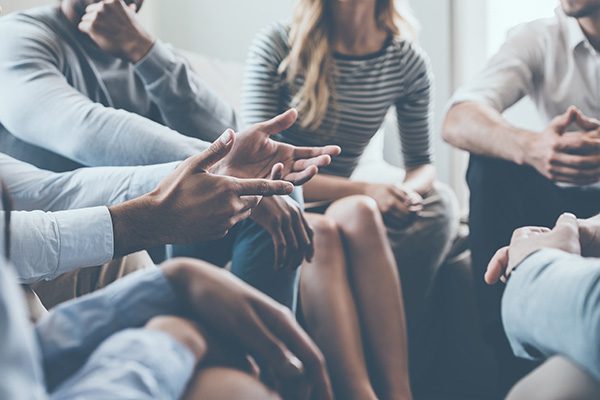
Addiction Intervention: Where people heal is in family systems, and it takes a village.
As you can imagine, my husband also grew up in a family of addiction, alcoholism. We both had enough awareness to know. We wanted things to be different for us. We didn’t want to continue to grow up and live in a household similar to the way we were raised.
Intervention is one of your specialties. What is your definition of an intervention?
I love working with families. Where people heal is in family systems, and it takes a village. For me, it’s working with the families to create a plan. An intervention is a well-coordinated and thought-out presentation of a plan. You have a professional there to guide what the solution is going to be and what the next step is. You present that well-thought out, organized plan to the person who’s suffering and struggling.
You do that as a family system. Family systems look different. They could be family of origin, your work family or your family of choice but they’re the people who love you most in the world who are going to stand by you in the long run, support you and be part of your solution. An intervention is a presentation of a plan.
How important is it for a family to be involved with intervention and to follow directions?
It’s very important. Your family are the people that are going to be there through thick and thin. Definitions of family vary. It could be your family of origin, your family of choice or your work family, but it’s those around you. There are four reasons people go to treatment. Darryl Bullock taught me this a long time ago. We call it the four Ls: Liver, Lover, Legal and Livelihood.
That’s where the leverage, the persuasion, and the ability to get someone into some space of willingness come from. The lover is the family system. It’s so important that they’re part of the process, hear and understand what that process requires and participate in the best way they can. Sometimes it’s important that they aren’t a member of the initial intervention team.
If they can’t be part of the solution at that moment, we’ll invite them back into the process at a later time. There are times when different family members, for various reasons, their emotional stability, wellness and willingness maybe can’t be a part of that exact moment or presentation of the plan. It is important and very valuable if they’re part of the overall solution.
I’ve heard this, and I’m sure you’ve heard this as well. The addict is the person that needs to help. I don’t need the help. Many times, more often than not, the family also needs to do work. How do you get the family to realize that they are part of the problem and they also have to do the work?
[bctt tweet=”A lot of sober people have saved millions of other people’s lives, just one person to another.” username=””]For me, it’s about inclusion and welcoming them into the solution. When you come from an education system, not shaming, blaming or pointing fingers, most of the family, it’s a fear base. I don’t have a problem. I’m not the one with the needle in my arm and the one drinking too much. I have a job. I go to work. Helping them understand the dynamics of the family system, the exchange between them, and how the family system heals often creates a level of willingness.
They’re willing to at least investigate their part. What I invite them to do is create some awareness, open a door and at least be willing to investigate what we’re talking about and what we’re inviting them into very similar to their loved one. If they can’t do it for themselves, do it for their loved one. Oftentimes, that brings them to the table.
For example, a person that’s struggling with alcohol or drugs, they can go to an AA meeting. There are tons of AA meetings. They can find a sponsor, work the steps and go to meetings every single day. There are lots of people that are in recovery, and it’s easy. That above therapy, IOP and rehab, where does a family member go? They don’t have an addiction problem. Where do they go to start doing the work?
There are lots of community base. There are some silver linings in this pandemic. I’m sure you’ve experienced the same thing. It’s creating virtual spaces for people similar to AA, people who normally wouldn’t have walked through those front doors that first time. It’s funny you say it’s easy. There are so many of us think it’s easy. We think it’s easy because it’s the norm in our world, and it’s what we do but for many people, it’s far from easy to walk through that front door of AA, Families Anonymous, Codependent No More or any of these other support meanings for families. It’s overwhelming and not easy.
Zoom and some of these other virtual platforms have made it easier, less frightening and more available to families that may not have been willing to have that initial experience and to understand the strength, the support, and the education that they can receive in those chat rooms on those Zoom calls or in those therapy offices. It’s been a silver lining.
To your point, Zoom and Telehealth have made it much easier and much less scary for someone to go to a meeting and get involved. However, on the flip side of that, you don’t get the full experience because it’s hard to connect with other people via Zoom. A big part of going to a meeting is the connections before and after the meeting, the coffee and lunch after the meeting, the meeting before the meeting, and the meeting after the meeting. Those don’t happen when we’re all in Zoom.
Correct, but it was a space to begin. When the world was closed, and there was nothing else, it was a place to at least sit and be part of. You don’t connect in a virtual world. It makes it much more difficult and in-person is the best solution. If you have someone that lacks that willingness, has an immense fear or lack of understanding and that’s where they’re willing to put the toe in the water, I welcome that. However, you’re going to first get there. Maybe someone on that Zoom meeting says, “Do you want to meet for coffee? Have you been to this breakfast spot down the street?” That gets you into your first face-to-face meeting, then you’re off and running.
To your point, the road to recovery starts with a single step.
However they’re willing to walk to the space and to open themselves up for that, I welcome that.
Even if the meeting is via Zoom, it’s important to find a Zoom meeting that’s local so that you can connect and say, “I can relate to what you’re struggling with. Do you want to grab a coffee?” What is a certified intervention professional?
Time has been in a warp, and all of 2020 disappeared. Years ago, the CIP certification was created out of Pennsylvania. We, as professionals, wanted to professionalize the service and the field. Intervention for a long time was one sober person to another struggling person. There wasn’t a lot of structure, guidelines or regulations around it. The CIP was created. AIS, the Association of Intervention Specialists, worked very hard to create that certification and establish that level of professionalism. It’s been in place for years.
I know you’ve been in the business for decades. You’ve been around for a long time. I know that you were one of the pioneers in creating intervention certifications because you wanted to bring the standard up. Let’s hear it from you. Why is it that an interventionist needed to become more professional as opposed to just one sober person going out and getting the person to go to treatment or go to an AA meeting?

Addiction Intervention: It’s important to have education and experience when you’re walking into a family system.
I was just one of a group of many that were interested in creating professionalism in this field. Back in the late ‘90s, early 2000s, it was unregulated and unsupervised. There were lots of great things happening. Don’t get me wrong. A lot of sober people have saved millions of other people’s lives from one person to another. I don’t want to take away the power of that at all. That in itself is amazing. We talked about family systems and groups of individuals.
It’s important to have education and experience when you’re walking into a family system. You’re trying to navigate, direct and put together a plan for that, having that level of professionalism that people can understand why they should listen to you. When I walk into a room with a surgeon, an attorney or the CEO of a major corporation, why should they listen to me? Who am I? What allows me to lead this group and direct them? There has to be some structure, guidance, professional ethics and professional standards to support this and have it be a true professional thing.
All interventionists are not created equal as you know. At least there are some standards and things that need to happen for a person to become certified and a legitimate professional interventionist. Having that in place is so important. That’s why it’s become more professional. Moving on, what gives you the right to claim you are an expert in helping individuals take the first step to recovery?
It’s a combination of education, certifications, trainings and experience. After I became certified and finished my trainings, I sat second chair with another professional for a very long time. I sat second chair with as many professionals would allow me to sit the second chair because I wanted to continue to grow, learn and hone the craft. Intervention is an art form like many other practices. You take the training skills. You’re not building widgets. You’re working with families. It’s important, powerful, and emotional. The more training, certification, education, and experience you can get, hopefully, the better you will become and the more of an asset you will be for families that are struggling.
What specific incident inspired you to be so passionate about helping individuals that are willing but not able? Where were you? What happened? Who were you with?
I don’t know that there ever was an incident. I did therapy through theatre. I volunteered as a teenager. It was called The Albert Sitton Home at the time. It’s where foster children went. It’s the kids that were taken away from their families. I was part of a theatre group. We would go in there and do finger puppets. That was called Therapy through Theatre. I became a peer mentor. I went in with a group into high schools when no means no on date rape. The Nancy Reagan age, just say no to hugs.
I’ve always been that person who has wanted to be part of helping and being of service to other people. I thought that I was going to grow up to deliver babies. I was going to be a midwife and deliver babies. God has different plan for me. It’s been in me from a young age. Maybe that’s part of my family system, part of my sister’s story or my own story, but I don’t know if there was ever a specific incident that I could put my finger on.
Who should consider hiring an interventionist?
It’s anybody that’s struggling with a loved one or a co-worker with addiction. I always encourage families to have initial conversations. “Have you addressed this with a person? Have you spoken to a person? How has that conversation gone?” Some people have a conversation, and there’s a level of willingness and a breakthrough. Their loved one goes on to treatment but for the majority of people, having a professional guide and support them through this process help them with their words and plan, create a safe container, a safe space for this journey into healing to happen. They need a guide and someone to walk them through that process.
It’s like they’ve never done it before. It’s like, “I’ve never done this before. Let me go and do it.”
Most often, addiction leads to an unhealthy family system. The communication skills, the way they communicate, the way they don’t communicate that has developed around and in addiction. What would make it suddenly healthy because they wanted to do something different? They need support and be guided through that process.
If someone thinks that maybe they want to hire an interventionist or they’re thinking an intervention is appropriate, what’s the first step for them?
Get some references and referrals. If they are seeing a therapist in the community, if there are some treatment centers or hospitals they’re familiar with, whatever they’re comfortable with within their system, get some referrals for some professionals. There are not lots of people that are savvy enough to go, “I’m going to go online and look at the Association of Intervention Specialists. I’m going to find the best fit for me.”
They’re going to go to their community providers, church, temple, schools, hospitals, doctors, find the resources and the community professionals. Get references and then start interviewing. Not everyone is a great fit for everyone. Get on the phones, start calling, asking those questions, seeing who you connect with and who answers those questions in a way that is relatable to you and brings you some relief.
[bctt tweet=”Continue to stay in gratitude. Sometimes, it’s easy to take for granted what our lives look like and the blessings that we have.” username=””]Someone starts making phone calls and doing the research. How long does it take for the actual intervention to happen and then after the intervention? How long is that typical process?
We work with our families usually for up to a year. We haven’t spoken about this, but part of our intervention process is an aftercare. It’s not walking through the doors of treatment. It’s not just getting your loved one into treatment. It’s how do you handle those phone calls when they call from treatment, and they want to come home or they call and say, “I haven’t seen the doctor, and they’re not feeding me. Everyone else here is a heroin addict. I’m only going to get worse here.”
How do families manage those phone calls? How do they manage their entrance into healing and steps into recovery? How do they implement all those new skills, thoughts, and ideas that their loved one learned in treatment? How do they put that into an active recovery plan after treatment? We work with our families for a length of time. It’s not just the conversation, getting someone to the front door of treatment.
It’s a year. Recovery is not just the intervention and getting them to treatment. There was a study done at Stanford. We have 60,000 to 70,000 thoughts per day. Ninety percent of those thoughts are subconscious. Ninety percent of those thoughts are the same thoughts that we had the previous day. We’re programmed to live life a certain way. We have the same thoughts every single day.
It’s a process to change our thoughts, our thinking, the way that we act and respond, and our behaviors. It doesn’t just happen by going to inpatient treatment where you’re in a bubble and protected. It’s a whole process. I love that you stayed engaged for a year. That’s important for people to know.
Those thought processes aren’t just for the person struggling with substance use and mental health. It’s the whole family system. We’ve always done it that way. We never do it this way. We’ve always communicated this way. We’ve never spoken about that. We hear that all the time. How do they learn to do that differently if they aren’t guided through the process?
Your family is your family. That’s not going to change. You could separate yourself from your family or you can work on the family system, and the family can do the work as well. That’s why one of the things that we say is new friends and new hobbies. It’s like changing your environment and the people that you surround yourself with. My friends look completely different than what my friends looked like before I got clean and sober because I want my life to look different, but my family is still the same. My family’s not going to change.
Sometimes that’s the truth, Tim, is we can guide everybody, educate and give new tools and skills. That doesn’t mean people are going to use them. Sometimes part of a family gets well. Sometimes just a member of the family gets well. Sometimes you can see a whole system changed, but it’s a lot of work, and not everyone is willing to show up to do all that work on a daily basis to create lasting change. That’s the hope of the professionals. The hope is to provide the tools, give them the platforms to get well, but not everybody comes to the table.
I don’t remember who I was talking to. As alcoholics and drug addicts, we’re lucky because we’re forced to have to do the work, whereas people that are not affected by addiction, mental illness or alcoholism are just cruising along. Many times, there’s no reason to start doing the work. Their norm is their norm. I’m not causing problems, losing my job or relationships. I’m not happy. Why would they do the work? They haven’t hit a bottom.
They’re skating along, and there’s another person in the family that isn’t doing as well, so they look good in comparison. It’s similar to me. You can skate by for a long time when the focus and attention are on somebody else. We are the lucky ones. We get to do the work, the hard work, the lucky-unlucky and blessed. It is a blessing to be able to do this, but unfortunately, not everybody’s willing to show up for that.
I speak with lots of people, and they say, “How did you change?” It’s like, “I did the work.”
I say, “I’m doing the work.”
“I did the work, and I’m doing the work.”
It’s the same as we talk about with professionalism. We’re always continuing education classes and learning more. There’s always new information. I hope in my personal growth, in my continued work that I’m doing on this planet as a human that also continues. Every day, I meet someone or I’m around someone, and it makes me better for that interaction or that experience. I want to continue to grow and learn professionally but especially personally. I grow and stretch in our family every day. That’s the goal.
Professional, spiritual, emotional, and mental fitness is like going to the gym, working out, and staying physically fit. You don’t just get physically fit and like, “I’m good.”
“I don’t have to walk anymore or lift weights anymore.”
“I don’t have to go to the gym, run or do anything.” It doesn’t work like that. In every single area, we have to continue learning and growing. Helping others is the best way for us to continue growing, learning, and seeing ourselves in other people. That’s been my experience.
Continue to stay in gratitude. Sometimes it’s easy to take for granted what our lives look like and the blessings that we have. For me, working with families and remembering the struggle helps me remember the blessings and to stay in gratitude for the life I fought so hard for that I have. Gratitude for me is a very big piece of my daily journey.
What are you grateful for?
I’m grateful for my family, my health, and this conversation with you, Tim.
Let’s talk about individual recovery support services, which are the services that Hired Power focuses on. What is a Personal Recovery Assistant?

Addiction Intervention: The more training, certification, education, and experience you can get, hopefully, the better you will become and the more of an asset you will be for families that are struggling.
A Personal Recovery Assistant is a professional support person that helps in the transition. We enter in lots of different areas of transitions. We could be part of the intervention process. A personal recovery assistant, a sober coach or a sober companion could be sitting second chair in that intervention to accompany that person to the door of treatment at the end of the intervention to safely see that they get from the door of that intervention to where they’re going to.
It could be a person that maybe you’re in treatment and you’ve got to go to a court hearing, there’s a funeral in your family or there’s a reason that you have to walk out that door of treatment before you’re ready. A Personal Recovery Assistant is a certified trained professional that can accompany you through those high acuities, high emotional periods, help support and get you back into that door of treatment after that process.
They also can go home with you post-treatment. I believe wholeheartedly in treatment, in the need for treatment, in that stabilization period to get those core understandings and education, just that safe container to get sober and start healing, but at some point, you’ve got to return home. I equate it to the Wizard of Oz. Happy, joyous, and free is that Emerald City, but the Yellow Brick Road is full of witches, flying monkeys, and poppy seeds. How do I get from A to B?
We leave treatment with a one-dimensional piece of paper that says, “Go to 90 meetings in 90 days. Find a sponsor. Live in sober living. Find a therapist or a marriage counselor. See a psychiatrist.” There is a whole list of things that are getting more complex. Our clients and patients are getting more complex.
It’s having someone accompany you down that road and help guide, support, and mentor you through those early days of recovery as you build new skills and implement what you’ve learned into treatment into an action plan. Recovery is action and isn’t just our thoughts. Our thoughts are still sometimes in circles. You’ve got 70,000 thoughts that you’ve had every day, the day before. How do you make those new thoughts into actions? With Personal Recovery Assistant, we say there are six principles, guide, support, mentor, report, advocate and collaborate. That is the role, and that is how we aid people into early recovery.
One of the things I learned early on is it doesn’t matter how I feel. It matters what I do. It’s the action. Also, Tim needs to listen to somebody besides Tim.
Tim got you right where you were in the first place.
My best thinking got me where I was. I hear so often people say, “No, I need to go with my feelings.” Your thinking got you where you are. We got to listen to some other people that have what we want.
People that have walked the walk and understand the journey and the process that they’re beginning to go through.
Recovery is transformation. It’s not easy.
Those are small little teachable moments. What is the next thought? What do I do? How do I put that into action? I don’t feel like getting out of bed but if I have someone saying, “You got to get out of bed. Let’s get in the shower. Let’s go,” you’re more apt to get out of bed than if I’m lying there thinking, “I don’t want to get out of bed. I don’t want to go to that meeting. I don’t want to go see those people. I don’t feel good today. I don’t look good today.”
We all have those 9,000 reasons why we can’t do the next right thing. Having someone walking beside us, whether it’s a personal recovery assistant, a sponsor, a therapist or a sober living, there are lots of paths to recovery and support available out there. It doesn’t have to be one way but just be willing to open yourself to A way to get that support.
Alcoholics and drug addicts like to isolate themselves. We can always rationalize. What I’ve always learned is when I don’t feel like going to a meeting is when I need to go to a meeting. When I don’t want to call my sponsor is when I need to call my sponsor. When I don’t want to pick up the phone is when I need to pick up the phone. Those are the times when I need to take action.
It’s helping someone create a list. What are those things you can do when you can’t seem to get into action? Sometimes it’s like, “Get up and take a shower. Get up, walk outside and look at the water. Get up and make yourself a cup of coffee.” It’s that initial action to get going, like recovery. That is day after day, action after action that gets us into long-term recovery.
Us being programmed to live our life a certain way and have the same thoughts every single day, it’s so easy to revert back to our old behavior. The path of least resistance is to go back to doing what we were doing, which is why we need an additional layer of accountability and support. That’s going to be helpful. One of the things that I spoke with you about was people’s pain for sober companion or recovery support services. It’s not free. Why is it appropriate to charge for those services?
In the program of Alcoholics Anonymous, that is a free program. Sponsorship is giving back. It’s part of our recovery, program, and own journey. Sponsorship is for free and for fun. That’s why the delineation between peer recovery and professional support are different. That’s why we had to create the professional standards, the professional ethics, the education, the training, the certification. We can go to an AA meeting, get peer support and guidance, but they’re not professionals. They’re someone walking along that journey with us.
A professional is someone who has additional education, training, and experience. You’re going to pay and hire them for that service. My friend might be good at doing taxes and might help me do my taxes, but I probably want a professional to look over those taxes if I’ve got anything more complicated than a general W-2 and tax form. When I was 16 and 18, someone could do my taxes for me, and it was easy, but life gets more complicated. For people with addiction and mental health, our struggle and recovery are more complicated. Needing a professional to guide us requires that and professionals are paid.
[bctt tweet=”Recovery is transformation. It’s not easy. ” username=””]There’ve been many new forms of accountability and support developed over the past several years, including Soberlink, technology-assisted care, DNA and drug testing. Of all of these new things that have been developed, what do you think has been the most effective?
Is there a most effective? It’s a combination, Tim. People are getting more complicated. There’s no such thing as a standard good old alcoholic. There’s the nursing society, family systems, and work complications. There are lots of things that need to be brought to the table for solutions. These technologies like at-home DNA testing saved a lot of people during the pandemic when they couldn’t go to the labs and get out. We started using that testing in January 2020, right before the pandemic unknowing that this was going to happen. Our clients were seamlessly able to continue their random testing. They were able to receive coaching. We have a platform called the Coach Connect.
Virtual coaching, that app was available to them through the pandemic. Soberlink, having that breathalyzer handheld small device that can be used 4 to 6, 8 times a day to support recovery. We were talking about my father-in-law. Unfortunately, he just passed, but he got sober at 75 years old. He went through a treatment program and then onto Soberlink. As recommended, he did a year of monitoring and aided recovery support from Soberlink. At a year, the family said, “You don’t have to do that anymore.” He said, “I need this for me and to be accountable.” He used that Soberlink until the day he passed away as his support mechanism and self-accountability. He wanted to be accountable to himself as well as to his family.
There are so many tools. There are virtual apps, DNA testing, Soberlink device, coaches, companions, and 100 different ways for people to get support while getting sober and getting well with mental health. We have to be those advocates and those people talking about it, making people aware that there are so many resources to aid in recovery. It’s incredible and amazing what we can bring to families and to clients to support their journey and help them get into long-term recovery.
There are so many different forms of accountability and support. That’s what it’s all about. The more accountability, the more support you can offer. It looks different for everybody, whether they go or don’t go to sober living, go home, get a Soberlink device or get a coach with Coach Connect with some sort of a technology assisted care, which has GPS tracking on it. There are all these different things you can do. The purpose of all of these things is it’s not because we want to catch people drinking, doing drugs or at the bar. All of it is preventative and supportive.
Creating accountability builds responsibility. It brings back into their life the things they’ve lost that addiction, drug use, and mental health has taken from them. That accountability and responsibility bring things back into their life. It is a support system, an aid and a blessing for them. They don’t see it that way in the early time.
Oftentimes, families don’t see it that way, but some of those services allow the families to step away from the policing, from the unhealthy boundaries and the unhealthy communication that they had with their loved one when their loved one was using. It allows them to step back and maintain or learn how to communicate effectively and healthily because they don’t have to be the cocaine police or the alcohol police.
They don’t have to be searching their house for alcohol or smelling their breath. They’re looking at their pupils because there are professional services and tools that do that for them. They can just stand back and be the wife, the husband, the mom or the dad. Those are very important tools to bring in. We started off talking about families, and I want to circle back on that because the studies indicate individuals get well in family systems. If the family systems can get well, the success rates are higher.
One of the things I was thinking about when you were talking is Soberlink. It’s 6 to 8 times a day people get breathalyzed. It’s not like, “We’re going to breathalyze you because we think you’ve been drinking. We’re going to drug test you because we think that you’ve been using.” People that are at sober livings, they get drug tested two times a week every single week. It’s random. It always happens. It’s not because we think that they’re drinking or using. That’s what happens. Therefore, they know they’re going to get tested. Same thing with Soberlink, they know they’re going to get tested. That’s one more reason for them to be like, “I’m not going to be able to get away with this.”
It’s their own accountability. Like my father-in-law said, it helped him have a reason not to pick up. “I know in the next hour, I’m going to have to breathe into that tube, and it’s not going to go well for me.” It helps them create their accountability for themselves.
Let’s talk about Hired Power. Tell me about that.
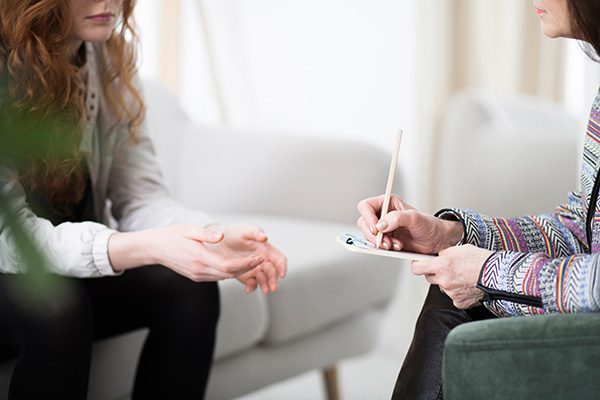
Addiction Intervention: People with addiction and mental health, our struggle and recovery are more complicated. Needing a professional to guide us requires that and professionals are paid.
Hired Power was founded in 2002. It is a transition service. We work in the community. We work nationally and internationally with clients, families, and other professionals trying to support clients as they’re beginning their journey. It could be a mental health journey, substance use disorder, process addiction or eating disorders. We’re working with clients and families across all of those spectrums, and we provide transition services. Interventions, safe passage, helping people get to the door of treatment, whether it’s from home, hospital or jail. We go home and have services that support them in early recovery post-treatment.
Personal Recovery Assistance, the Coach Connect or virtual app coaching program, the monitoring program that is that daily accountability, building accountability and responsibility. The coaching companion, going into people’s homes, helping them be in that teachable moment. Those guides and mentors that are helping people put into action, that early recovery, new thoughts, skills, ideas. We support recovery and healing. We’re community-based in most situations.
How can people learn more about Hired Power? Where can they find you? How can they connect with you?
We have a great new website. We launched a brand-new version of our website. It’s easy, Hired Power. I always tell everyone, “Hired, like you’re hiring someone for a job.” A lot of people want to say Higher Power. ITs and my husband gets to call me God, but he doesn’t think that’s power. You can find us online or our 800 number, which is 800-910-9299.
[bctt tweet=”Creating accountability builds responsibility.” username=””]Is there a question that you’ve always wanted to be asked, but the interviewer never got around to it? If so, what would that question be?
Not off the top of my head.
We’re coming up here to the end of the show, and that’s all we have. Nanette, I enjoyed talking with you. Thank you so much for your time. I appreciate you, all the work that you do, and the work that Hired Power does. You work with treatment centers and interventionists in California, all over the country, and internationally.
Thank you, Tim. Thank you for having me. I always enjoy speaking with you, the work that you do, and the work at Camelback Recovery. Thank you so much for the work that you do.
Thanks everybody for reading. I hope you have a wonderful rest of your day.
Important Links:
- AA
- Nanette Zumwalt
- Association of Intervention Specialists
- National Association of Addiction Treatment Programs
- Families Anonymous
- Codependent No More – Facebook
- Soberlink
- Coach Connect
- Camelback Recovery
About Nanette Zumwalt
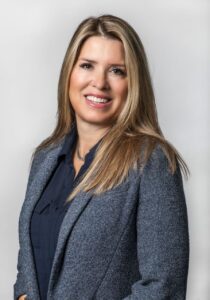 Nanette Zumwalt is currently recognized as one of the top interventionists and an industry expert, both nationally and internationally. Nanette began working in the field of mental health and addiction treatment nearly three decades ago as a direct care technician at inpatient acute psychiatric hospitals. With her vibrant and engaging personality, knowledge, experience, and sincere desire to help those in need, it is no surprise that her career has included various management titles throughout top national therapeutic schools and recovery programs.
Nanette Zumwalt is currently recognized as one of the top interventionists and an industry expert, both nationally and internationally. Nanette began working in the field of mental health and addiction treatment nearly three decades ago as a direct care technician at inpatient acute psychiatric hospitals. With her vibrant and engaging personality, knowledge, experience, and sincere desire to help those in need, it is no surprise that her career has included various management titles throughout top national therapeutic schools and recovery programs.